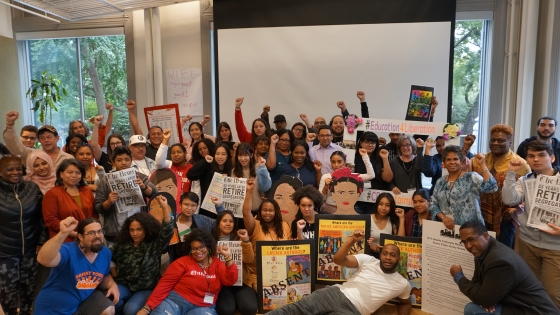March 2018
Introduction
In this volatile political time when racism and bias are increasingly visible in politics and the media, young people are looking to schools to help them understand the world and themselves.
In an era when Charlottesville, Parkland, #MeToo, NFL protests, deportations, and the rollback of protections for LBGTQ people dominate the news, issues of race, ethnicity, gender and sexual identity are on young people’s minds and hearts. Schools and teachers make choices daily about whether they should ignore or attempt to respond to these issues. They decide how to handle questions from students and tensions that arise in their classrooms, and they ultimately decide whether to leverage these situations to stimulate student engagement, learning and growth, or not.

